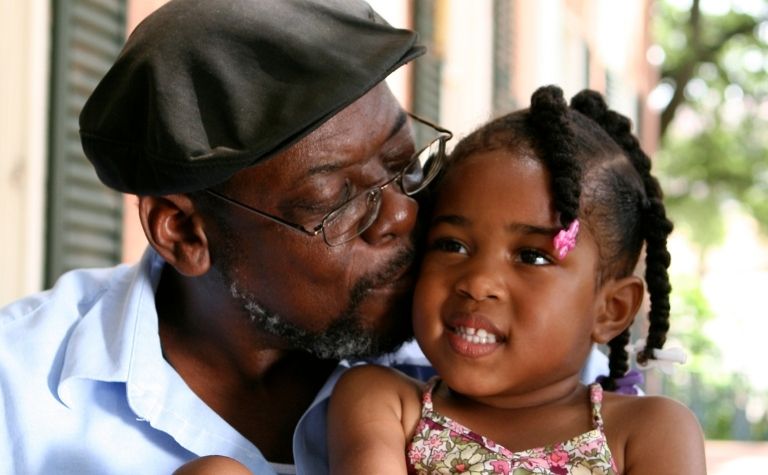What is heaven like? A lot of people ask this question. While many believers look forward to seeing Christ face to face (1 Cor. 13:12), they are also curious about the other people that will be in heaven. Will people know who their grandparents are? Will people recognize their spouse? Will people have close relationships with their children and friends?
The Bible implies that Christians will recognize and know each other in heaven. While believers will have new bodies, they won’t be different individuals. Eternal life with God in heaven doesn’t erase the relationship that believers have with each other but completes and enhances them.
Do only souls go to heaven or do bodies also? What will peoples’ new bodies be like? What does it mean that believers’ new bodies will be like Jesus Christ’s resurrected body? Why are peoples’ relationships with others, in this world and in the next one, important to God? Keep reading to learn the answers to these questions and others.
Also see Will I Go To Heaven? to learn more.

Does the Bible say people will know each other in heaven?
Why do people question if people will know each other in heaven? One reason people wonder about it is because of the common misunderstanding that believers will be body-less souls in heaven and immaterial, translucent, ghost-like apparitions may be difficult to identify. Yet, the Bible doesn’t teach that people will be eternally body-less.
Do only peoples’ souls go to heaven? Upon physical death, believers are body-less in between the time they physically die until the Second Coming of Christ. According to the Bible, people are fully conscious during this interval and in the presence of God, as Jesus told the thief on the cross “Today, you will be with me in paradise” (Luke 23:43, ESV, emphasis added).
What is the intermediate state? Theologians often refer to the period between a person’s death and the Second Coming as the Intermediate State. Believers will be body-less during the intermediate state. It’s called “intermediate” because it’s temporary, which means that it’s not the believer’s final destination.
Will people recognize each other during the Intermediate State? The Bible teaches that people will recognize each other during the Intermediate State. For example, Moses and Elijah, who had been with God in heaven for centuries at the time of Christ, are clearly recognized at the Transfiguration.
“And after six days Jesus took with him Peter and James, and John his brother, and led them up a high mountain by themselves. And he was transfigured before them, and his face shone like the sun, and his clothes became white as light. And behold, there appeared to them Moses and Elijah, talking with him.” (Matthew 17:1-3, ESV)
Jesus also implied that Abraham, Isaac, and Jacob will be recognizable and known in heaven when he said, “I tell you, many will come from east and west and recline at table with Abraham, Isaac, and Jacob in the kingdom of heaven.” (Matthew 8:11, ESV) The Bible’s teaching about heaven implies that people will recognize and know others.
Also see Are Babies That Die Babies In Heaven? to learn more.
Will people have different bodies in heaven?
The Bible teaches that people will receive new physical bodies for the New Heavens and New Earth, which are established after the Second Coming.
- Isaiah 65:17, “For behold, I create new heavens and a new earth, and the former things shall not be remembered or come into mind.” (ESV)
- 2 Peter 3:13, “But according to his promise we are waiting for new heavens and a new earth in which righteousness dwells.” (ESV)
- Revelation 21:2, “Then I saw a new heaven and a new earth, for the first heaven and the first earth had passed away, and the sea was no more.” (ESV)
What will peoples’ new bodies be like? While Scripture doesn’t reveal all the details about peoples’ new bodies, there are some important truths that it teaches.
- Peoples’ resurrected bodies will be like Jesus’ resurrected body (Philippians 3:21; 1 John 3:2). Jesus had a physical body after he rose from the dead. After Jesus rose from the dead, he ate fish and invited Thomas to touch him “for spirit does not have flesh and bones” (Luke 24:39; John 20:27).
- Peoples’ resurrected bodies will be free of sin like deformities, sickness, and aging (1 Cor. 15:42-44; Rev. 21:4). The blind will see. The mentally ill will be their true selves. People will not experience the physical, mental, and emotional challenges of getting older.
- People’s resurrected bodies will be the same yet different (Philippians 3:20-21). Though believers’ bodies will be “new” they will still be their individual bodies, only without the affects of sin. Acquiring new bodies doesn’t suggest believers are different people. They are the same individuals, but existing as God intended in holiness and free of sin.
Christian author Joni Eareckson Tada writes, “Somehow, somewhere within you is the pattern of the heavenly person you will become, and if you want to catch a glimpse of how glorious and full of splendor your body will be, just do a comparison. Compare a hairy peach pit with the tree it becomes, loaded with fragrant blossoms and sweet fruit. They are totally different, yet the same. Compare a caterpillar with a butterfly.” (Heaven: Your Real Home, p. 38)
Peoples’ new bodies will be better than the bodies they had on Earth, but they won’t be so different that loved ones will be unrecognizable or unknowable.
Also see Who Will Not Go To Heaven? to learn more.

What will relationships in heaven be like?
The Bible teaches that people will have meaningful relationships in heaven that are free of sin and its many expressions like envy, jealously, hatred, grudges, and unforgiveness. The most prominent relationships believers have in heaven is with God. However, people will have healthy and holy relationships with each other as well.
Christian author Hank Hanegraaff writes, “Imagine [in heaven] being able to love another human being without even a tinge of selfishness. Imagine appreciating, no, reveling in the exalted capacities and stations that God bestows on another without so much as a modicum of jealousy.” (Resurrection, p. 117)
Why does God want people to be in loving relationships with other people? God wants people to be in healthy and holy relationships with other people because it brings him glory. When people love each other, it magnifies the perfect and holy love of God.
“A new commandment I give to you, that you love one another: just as I have loved you, you also are to love one another. By this all people will know that you are my disciples, if you have love for one another.” (John 13:34-35, ESV)
Mothers and fathers in this life want their children to have good relationships. They don’t want their sons and daughters angry, feuding, and distant from each other. Likewise, God is also a Father who wants his sons and daughters to love each other (cf. 1 John 4:11).
Peoples’ loving relationships extend into heaven. The Bible indicates that people will know each other in heaven. The love that people have cultivated on Earth for other believers will extend into heaven. Heaven is a place where relationships that believers have with one another will be perfected.
Purtian Pastor Richard Baxter writes, “I know that Christ is all in all; and that it is the presence of God that makes Heaven to be heaven. But yet it much sweetens the thoughts of that place to me that there are there such a multitude of my most dear and precious friends in Christ.”
“Shall we know one another in Heaven? I do not think anyone need wonder about this or doubt for a single moment.”
Amy Carmichael, 1867-1951, Christian missionary
Also see Will There Be Marriage In Heaven? to learn more.
Recent Posts
Every year, millions around the globe commemorate the birth of Jesus Christ on December 25th, a date synonymous with Christmas and festive celebrations. However, despite its widespread...
The term "Nativity" is often immediately associated with the birth of Jesus Christ and the stories surrounding this event. Yet, the essence of the word encompasses much more than a single...
